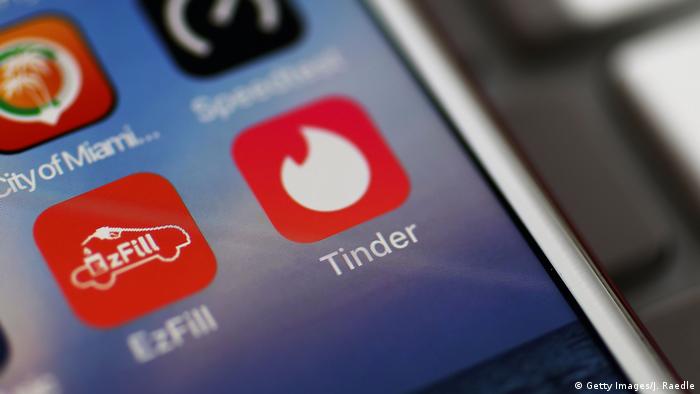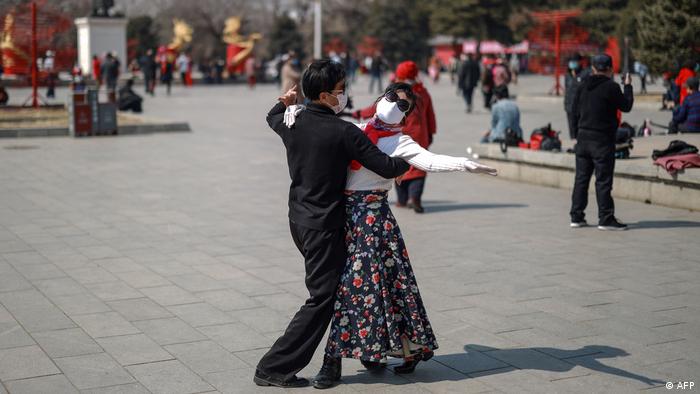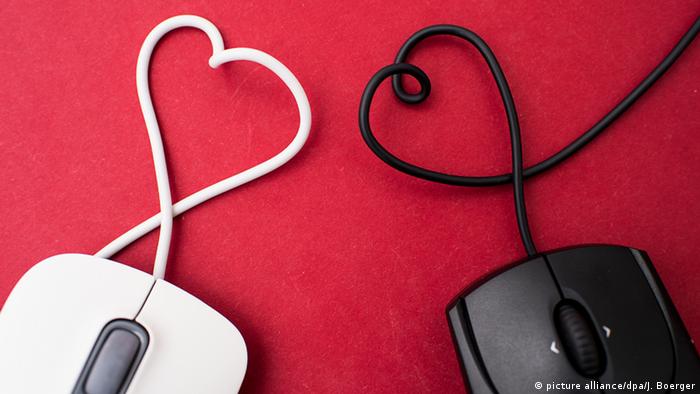Love in the time of coronavirus: COVID-19 changes the game for online dating
The dating game is rather dependent on people meeting in person. The COVID-19 pandemic ought therefore to be detrimental to the lucrative online dating business. Yet the opposite appears to be the case so far.Users of Tinder, one of the world's most popular online dating platforms, have been greeted by an unusual message on the app in recent days.
"Social distancing doesn't have to mean disconnecting," it begins. "We hope to be a place for connection during this challenging time, but it's important to stress that now is not the time to meet in real life with your match. Please keep things here for now."
As human instincts go, the desire to form connections with other people, particularly of a romantic nature, is surely stronger than most.
Global restrictions on movement and interaction aimed at stopping the spread of the novel coronavirus have worked in Asia and may work elsewhere. But will they slow the rate at which new relationships are formed, particularly in countries where online dating has become such a common way for people to meet?
Not necessarily, would appear to be the early evidence. While Tinder and other major dating platforms have shared WHO guidelines on social distancing in their apps and recommended that their users do not meet in person, they have noticed a sharp increase in usage in recent weeks.
Dating while being socially distant
Berlin resident Lars, 45, has continued to use dating apps since the COVID-19 pandemic took hold in Germany but he hasn't met up with anyone in person. That's not unusual though, he tells DW, as he normally waits quite a while before meeting someone in person anyway. Although the topic has come up, he says.
"There have been a couple of chats about meeting up for a socially distanced date, and also a lot of laughter about how weird or unsexy or unromantic that would be. I think that would be the only way right now to date responsibly though, to meet with respect for social distancing," he said.
There are no statistics available for what percentage of online daters in Germany or elsewhere have reduced the extent to which they meet in personsince social distancing became a widely recommended behavior. However, with pubs, bars and many restaurants closed, the number of possible locations to meet have dwindled significantly.
According to Tinder, users in countries that have been particularly afflicted by the pandemic have been more active since the restrictions began. And people are chatting online for longer, a possible sign they are taking comfort in more online communication at a time when face-to-face communication is not possible or at the very least, not recommended.
"The number of daily messages in the US increased by 10% to 15% compared with February," a spokesperson for Tinder told DW. "The number of daily messages in countries such as Italy and Spain, as part of an overall European trend, increased by up to 25% compared with the previous weeks. The length of conversations also increased by 10% to 30% compared with February," she said.
Several other online dating apps such as Bumble and Plenty of Fish have reported similar spikes in usage, particularly in places that have been heavily hit by lockdowns.
That people are using the apps differently than before is backed up anecdotally. Several people told DW that they have noticed that other users — men in particular — had become "kinder" than before, apparently being willing to chat for longer and in a manner more conducive to meaningful conversations.
A lucrative market
Various analyses put the value of the global online dating market at between $6 billion (€5.45 billion) and $10 billion. It's a market that is growing rapidly as more and more relationships start online, with people increasingly willing to pay for services likely to lead to successful matchups.
As an illustration of the allure of the market, Facebook launched its own dating venture last September.
While it might seem like the scale of the COVID-19 outbreak and the resulting massive lockdowns would have a damaging effect on an industry where face-to-face interaction is a crucial part, the initial signs are that online dating platforms are making the most of the crisis.
For those users who are adhering to social distancing while still using the platforms, video dating has become a popular alternative to meeting up in person.
Bumble has offered in-app calls since last year, and it recorded a 20% jump in the volume of users availing of the feature over the last week. As the pandemic worsened, Plenty of Fish created a livestreaming option for certain areas, so potential matches can see each other in real time.
Tinder has also reacted to the outbreak with a policy shift. The company has decided to make its "passport" feature, which allows paid subscribers to connect with anyone regardless of location, free to everyone around the world.
All about connection
For Lars, one of the major costs of the COVID-19 outbreak is "a sudden lack of connection" between people, and he thinks the apps are useful at this time as they give people an opportunity to find others to talk to, even if not in person.
That's something that Tinder CEO Elie Seidman remarked on last week in a statement to the company's users.
"We know that for many of our members it's more about the connection than the location," he said. "These are challenging times. And while it is not a moment to be meeting matches in person, we recognize that Tinder — a platform that is about connection — can play an important role as people navigate the uncertainty that COVID-19 has introduced into our everyday lives."





No comments
WE LOVE YOUR COMMENT ON THIS BLOG